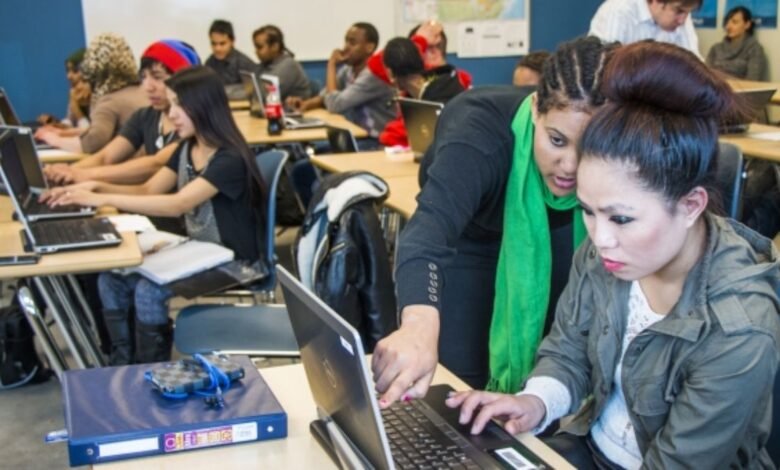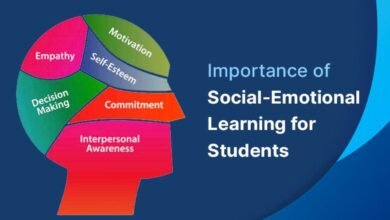How to Develop Critical Digital Literacy Skills

In today’s digital age, mastering critical digital literacy is essential for navigating an increasingly complex online world. Critical digital literacy goes beyond basic computer skills; it involves the ability to evaluate, analyze, and create digital content effectively and responsibly. This guide provides comprehensive strategies to develop critical digital literacy skills, empowering you to use digital tools with greater confidence and discernment.
Understanding Digital Literacy
The Foundation of Digital Literacy
Digital literacy encompasses a range of skills necessary for effective and responsible use of technology. It includes the ability to access, manage, evaluate, and create information using digital technologies. Critical digital literacy specifically focuses on evaluating the credibility of digital information, understanding its implications, and using it responsibly. This skill set is crucial in an era where misinformation and digital manipulation are prevalent.
Why Critical Digital Literacy Matters
In an age where digital information is abundant and easily accessible, the ability to critically assess the credibility of online content is more important than ever. With the proliferation of social media, fake news, and digital propaganda, individuals must be equipped to discern reliable information from misinformation. Developing critical digital literacy helps protect against digital deception and enhances one’s ability to make informed decisions.
Building a Strong Foundation
Start with Basic Digital Literacy
Before diving into critical digital literacy, it’s important to have a solid foundation in basic digital skills. This includes proficiency in using various digital tools and platforms, such as web browsers, search engines, and productivity software. Familiarity with these tools enables you to navigate digital environments effectively and serves as a prerequisite for developing more advanced critical skills.
Familiarize Yourself with Information Sources
Understanding where digital information comes from is crucial for evaluating its credibility. Start by familiarizing yourself with different types of information sources, such as news websites, academic journals, and social media platforms. Learn to identify reputable sources and understand the factors that contribute to their credibility, such as author expertise, publication standards, and peer review processes.
Evaluating Digital Content
Assessing the Credibility of Information
One of the core components of critical digital literacy is the ability to assess the credibility of online information. Begin by evaluating the source of the information. Check the author’s qualifications, the publication’s reputation, and any potential biases. Look for evidence of fact-checking, such as citations from authoritative sources and corroboration from multiple outlets.
Identifying Bias and Misinformation
Digital content often carries biases that can influence the presentation of information. Learn to identify signs of bias, such as selective reporting, emotional language, and unbalanced perspectives. Be cautious of information that lacks supporting evidence or relies heavily on anecdotal evidence. Familiarize yourself with common misinformation tactics, such as clickbait headlines and sensationalist language, and develop strategies to counteract these tactics.
Developing Analytical Skills
Critical Thinking and Analysis
Critical thinking is at the heart of digital literacy. Practice questioning the validity of information and considering alternative viewpoints. Analyze the arguments presented in digital content, evaluating the strength of evidence and the logic of conclusions. Engage in discussions with others to explore different perspectives and challenge your own assumptions.
Understanding Digital Manipulation
Digital manipulation techniques, such as deepfakes and altered images, can distort information and deceive audiences. Develop the skills to recognize these techniques and understand their implications. Learn to use digital tools that can help detect manipulated content, such as reverse image search and authenticity verification tools. Stay informed about emerging trends in digital manipulation and adapt your analytical skills accordingly.
Creating Responsible Digital Content
Ethical Considerations in Digital Creation
Creating digital content involves ethical responsibilities. Be mindful of the potential impact of your content on others and strive to uphold high standards of accuracy and integrity. Avoid spreading misinformation or engaging in deceptive practices. Respect copyright laws and intellectual property rights, and give proper credit to sources.
Fostering Digital Citizenship
Digital citizenship encompasses the responsible use of technology and the internet. Embrace the principles of digital citizenship by practicing respectful communication, protecting your privacy, and contributing positively to online communities. Encourage others to develop their own digital literacy skills and advocate for responsible digital behavior.
Leveraging Digital Tools
Utilizing Digital Literacy Resources
There are numerous resources available to help you enhance your digital literacy skills. Online courses, tutorials, and workshops offer valuable training on various aspects of digital literacy. Explore educational platforms, such as MOOCs (Massive Open Online Courses) and educational websites, to find resources that align with your learning goals.
Staying Updated with Digital Trends
The digital landscape is constantly evolving, with new technologies and trends emerging regularly. Stay informed about these changes to adapt your digital literacy skills accordingly. Follow industry news, subscribe to relevant newsletters, and participate in online forums to keep up with the latest developments in digital technology.
Applying Critical Digital Literacy in Practice
Real-World Applications
Apply your critical digital literacy skills in real-world scenarios to reinforce your learning. Evaluate the credibility of information you encounter daily, whether in news articles, social media posts, or academic research. Practice creating your own digital content, ensuring that it adheres to ethical standards and is free from misinformation.
Encouraging Lifelong Learning
Digital literacy is an ongoing journey. Continuously seek opportunities to expand your knowledge and refine your skills. Engage in lifelong learning by exploring new digital tools, participating in professional development opportunities, and staying curious about advancements in digital technology.
Conclusion
Developing critical digital literacy skills is essential for navigating the digital world with confidence and discernment. By building a strong foundation in basic digital skills, evaluating information critically, and creating responsible digital content, you can enhance your ability to engage with technology effectively. Embrace the principles of digital literacy and apply them in your daily life to become a more informed and responsible digital citizen.
With the rapid pace of technological change, the ability to critically assess and responsibly use digital information will remain a valuable asset. Equip yourself with the skills to navigate the digital landscape wisely and contribute positively to the online world.



